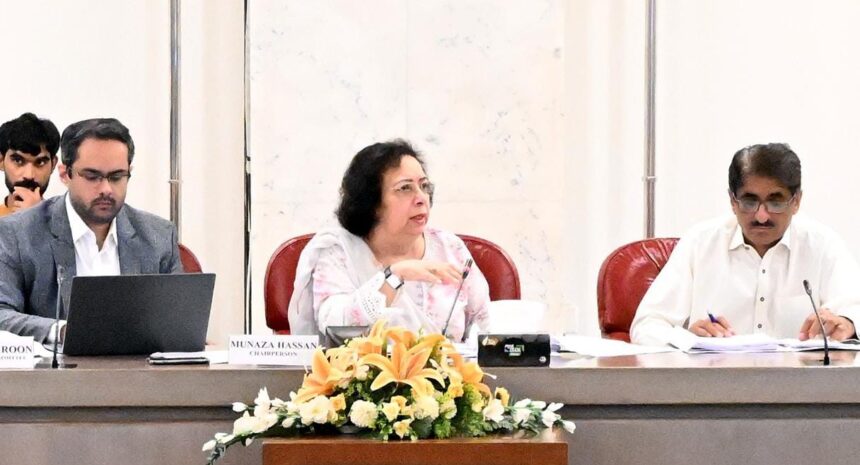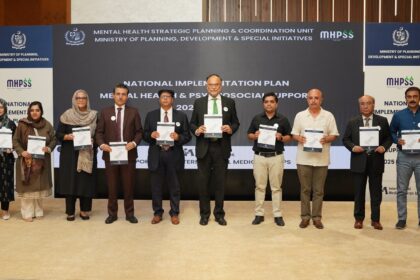The National Assembly’s Standing Committee on Climate Change and Environmental Coordination has called for urgent and decisive action to address Pakistan’s escalating climate challenges. The committee, chaired by Ms. Munaza Hassan at Parliament House, pressed for stronger disaster management, enhanced oversight of emission testing, and swift implementation of e-waste regulations amid warnings of increasingly severe monsoon seasons.
During the meeting, the committee criticized the Ministry of Climate Change for delays and inadequate briefings, emphasizing the need for timely and substantive support to ensure effective parliamentary oversight. Members highlighted predictions of a 22 percent increase in monsoon rainfall in the coming year, expressing serious concern over the lack of coordination between federal and provincial agencies responsible for disaster preparedness and response. The group underscored the urgency of addressing erosion in vulnerable regions such as Layyah, and called for investigations into widescale deforestation attributed to timber mafias in Khyber Pakhtunkhwa, Azad Jammu and Kashmir, and Gilgit-Baltistan.
A major focus of the session was vehicle emissions testing. The committee voiced strong dissatisfaction with the current regime, pointing out significant gaps in planning, methodology, and inter-agency collaboration. It recommended that no further emissions testing occur without the active participation of the Pakistan Environmental Protection Agency (Pak-EPA), and requested a comprehensive presentation on global best practices and actionable implementation strategies for future meetings.
The committee also reviewed progress on e-waste regulations, commending the Ministry and Pak-EPA for drafting a regulatory framework aligned with Pakistan’s international obligations. Nevertheless, members stressed the urgent need to tackle emerging threats such as improper disposal of lithium-ion batteries, inadequate hospital waste management, and ongoing plastic pollution. The committee advocated for the inclusion of independent experts in the working group on e-waste management and urged the Ministry to involve the private sector in developing effective recycling and disposal solutions. Among innovative measures discussed was piloting plastic bottle collection machines in Islamabad, inspired by successful international initiatives.
To strengthen the Ministry and Pak-EPA’s capacity, the committee recommended increased funding and support for initiatives such as urban forests, sponge cities, and rainwater harvesting. Ensuring transparent follow-up on official overseas visits was also emphasized to maintain accountability and oversight.
The meeting brought together a broad cross-section of members of the National Assembly and officials from the Ministry of Climate Change, Pak-EPA, and local administrative bodies, all reaffirming their commitment to advance Pakistan’s climate resilience and environmental protection.











